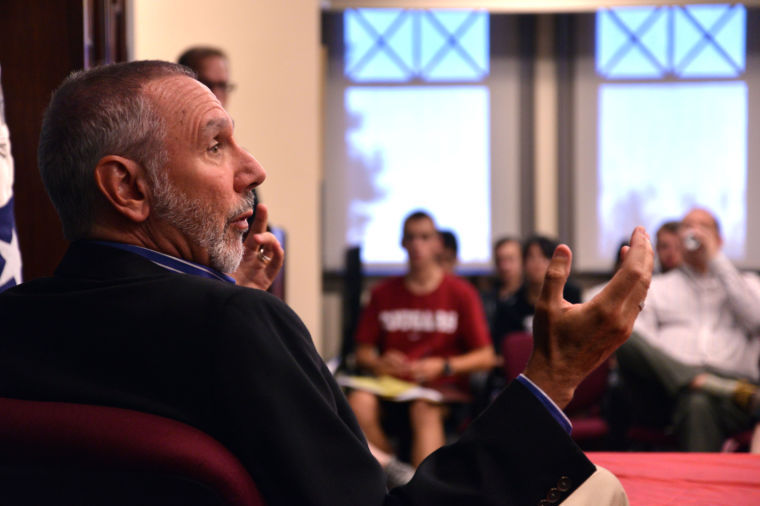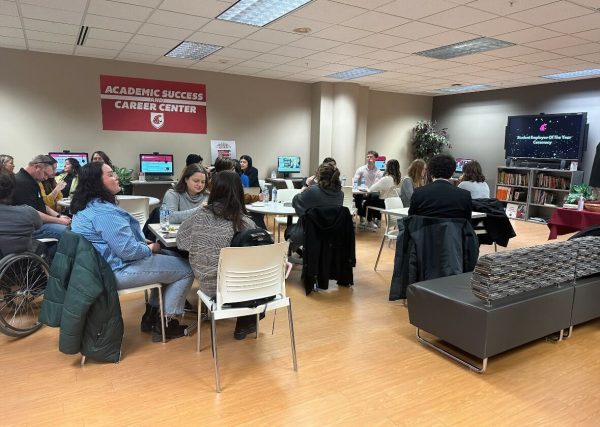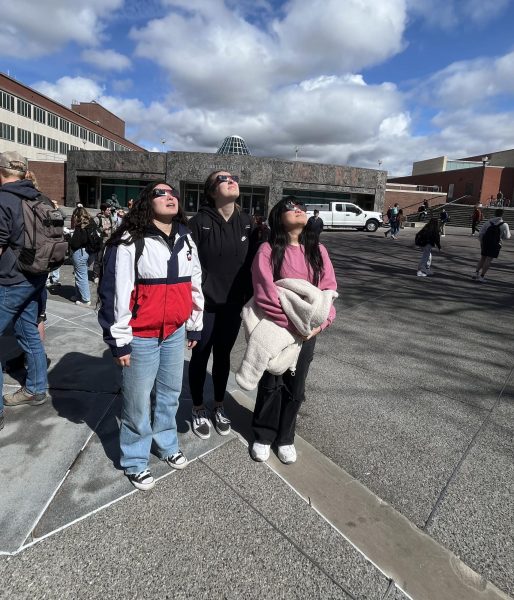Shifting to an ‘Arab Winter’
Lawrence Pintak discusses the current situation in Egypt during a Foley lecture in Bryan Hall 308 on Tuesday Sept. 10.
September 11, 2013
The turmoil in Egypt and the Arab world will get worse before it gets better, Lawrence Pintak, founding dean of the Edward R. Murrow College of Communication, said yesterday.
“The Arab world is shifting from a brief Arab spring to a deep Arab winter,” Pintak said during the Foley Institute’s Coffee and Politics event. An audience of about eighty students, faculty, and local citizens attended the event.
The Foley Institute invited Pintak to speak for the series due to his knowledge of the Arab world and his connection with students, said Richard Elgar, associate director of the Foley Institute.
Pintak wrote a book about journalism in the Arab world in 2011 and directed the Kamal Adham Center for Journalism Training and Research at The American University in Cairo before coming to WSU.
A long history of infighting between polarized religious and political groups has overcome recent attempts to achieve a functioning democracy in Egypt, said Pintak.
The emergence of pan-Arab media such as Al-Jazeera initially helped disparate groups to unite in common causes, he said. A common worldview was established between Arab nationalist and Islamist groups which led to the overthrow of former Egyptian President Hosni Mubarak.
However, the removal of their common enemy left both sides at each other’s throats, Pintak said, and the traditional media polarized that conflict.
Increasingly nationalistic and angry journalism in the region contributed to a recent assassination attempt on Egypt’s Interior Minister, he said.
There are two dialogues in the area, Pintak said: one in the official media where most journalists have retreated to partisan camps and one through social media where an actual dialogue exists.
Abdel Rahman Khatib, a professional engineer at Schweitzer Engineering Labs and an Egyptian, attended the discussion and considered the regular media worthless.
“I get most of my news from family in the area and people I know and trust on social media,” Khatib said.
Elgar said the Foley Institute’s Coffee and Politics series will continue Oct. 3, with a presentation on political polarization by Mathew Levendusky, an associate professor from University of Pennsylvania.






















